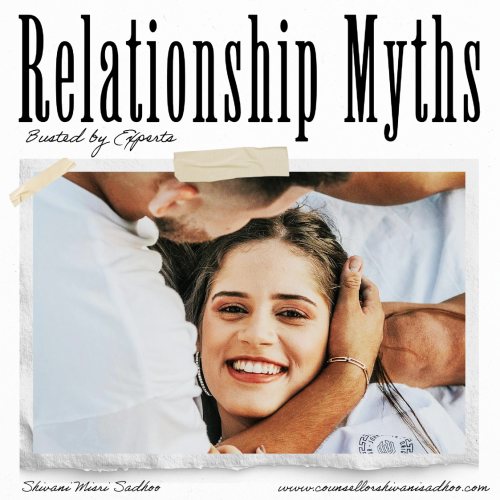When it comes to love and relationships, society has long clung to a set of romanticised ideas—many of which no longer stand up to the realities of modern life. These so-called “relationship rules” have been passed down through generations, often shaped by movies, cultural traditions, and unrealistic ideals. But what if some of these beliefs are doing more harm than good? Experts today are calling out these outdated myths, offering healthier, research-backed perspectives on what makes a relationship truly work.

What are some of the outdated relationship myths?
In this article, we explore the most common myths about relationships—and the truths you need to know as explained by Shivani Misri Sadhoo, who is a leading relationship therapist and marriage counsellor for Indian couples.
Myth 1: “True love is effortless”
Many people believe that if two people are truly meant to be, the relationship should be smooth and conflict-free. But therapists and psychologists disagree. Successful couples aren’t those who never fight, but those who learn how to manage conflict in healthy ways. Real love requires effort, communication, and growth—not perfection.
Myth 2: “Your partner should complete you”
Popularised by Hollywood, the idea that your partner should fill an emotional void or make you feel “whole” is not only unrealistic but potentially unhealthy. Psychologists argue that relying on someone else for your sense of identity or happiness can lead to codependency. A healthy relationship consists of two emotionally independent individuals who complement each other—not complete each other.
Myth 3: “Good couples never fight”
Disagreements are normal—even necessary—for relationship growth. Experts note that it’s not the presence of conflict but how couples handle it that determines the strength of their bond. Avoiding fights altogether can lead to suppressed feelings, resentment, and emotional distance over time.
Myth 4: “Physical intimacy should always be spontaneous and passionate”
The belief that a good intimate life must be frequent, spontaneous, and fiery is misleading. In long-term relationships, physical desire naturally fluctuates. It is recommended to have communication, scheduling intimacy if needed, and focusing on emotional connection rather than just performance or frequency.

Myth 5: “You should share everything with your partner”
While openness is key to trust, the idea that you must share everything—from thoughts to passwords—is extreme. It is advised to maintain a healthy balance between transparency and personal boundaries. Individual space can actually strengthen a relationship by preserving a sense of identity.
Myth 6: “Children strengthen a weak relationship”
Some couples believe that having a child will fix their relationship problems. In reality, parenting adds stress and demands a strong, united partnership. It is cautioned against using children as emotional glue. Instead, couples should resolve core issues before deciding to raise a family.
Relationships evolve with time, and so should our understanding of them. Clinging to outdated myths can limit growth and create unrealistic expectations. By busting these old beliefs and embracing more grounded, psychologically-informed views, couples can build deeper, more authentic connections. Love doesn’t require perfection—it requires awareness, effort, and mutual respect.

Shivani Misri Sadhoo is an internationally recommended relationship counsellor by the world’s biggest and most trusted study and research-based foundation for couples therapy – Gottman Institute. She is trained in specialised key relationship counselling Skills from AIIMS, VIMHANS and various other reputed institutions. Counsellor Shivani Misri Sadhoo is also certified in emotionally focused therapy, cognitive behavioural therapy, and dialectical behaviour therapy.
Counselor Shivani Misri Sadhoo is also a Certified Neuro Linguistic Practitioner with specialized training and experience in the field of affairs/betrayals, trust issues, difficulty communicating, conflicting values, bereavement, grief and loss (affairs, separation, divorce, childhood) and emotional health issue (anxiety, social anxiety, fear, depression, low mood).
Currently, Shivani Misri Sadhoo is one of the top counselors with the HIGHEST Success Rate with over 17,000 happy couples and individuals (based in India and abroad), who has benefited from her therapy. Psychologist and Counselor Shivani Misri Sadhoo not only practices independently from her clinic in Greater Kailash, Delhi, India, but also is listed on the panel of eminent hospitals like IBS Hospital Panel – Institute of Brain and Spine, Express Clinic, Fortis (formerly) based in Delhi.
Call Counselor: +91-8860875040
Email: saarthiforlife@gmail.com



